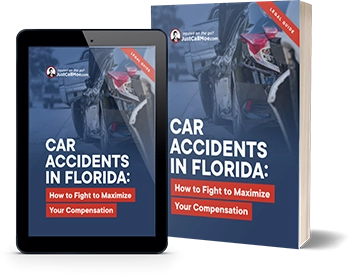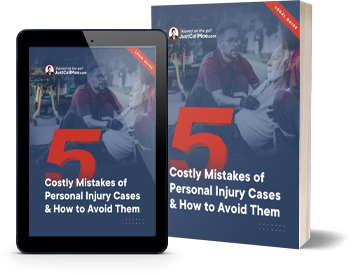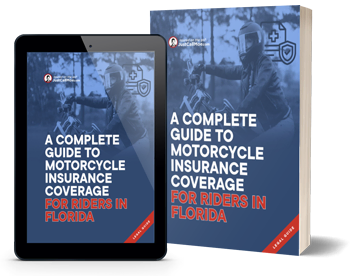Florida experiences a truly staggering number of hit and run accidents each year. In the best of circumstances, these accidents only involve a parked car that sustains some damage to the bumper.
In other accidents, however, innocent motorists and pedestrians are severely injured by the collision but left to fend for themselves.
Reach out to JustCallMoe if you were hurt in a hit and run in Orlando. Our firm is dedicated to accident victim rights, and we have negotiated many settlements for injured motorists. Get the legal help you deserve by scheduling a free consultation with our office.
How Common Are Hit and Runs? What the Statistics Say
Florida keeps detailed statistics involving all car accidents in the state, and the Florida Department of Highway Safety and Motor Vehicles (FLHSMV) makes them available to the public. In 2023, for example, Florida saw over 395,000 motor vehicle accidents.
FLHSMV also collects statistics on hit and runs. Here are the numbers for the past few years:
- 2023: 105,092
- 2022: 107,844
- 2021: 109,646
The Department further breaks down these numbers to show how many people were injured or killed. In 2023, the state experienced:
- 276 hit and run fatalities
- 954 incapacitating injuries in hit and run collisions
- 21,702 other injuries suffered in hit and run accidents
As you can see, thousands of people are injured in a hit and run in Florida, despite the state’s clear command that motorists must immediately stop after an accident. The criminal law does not provide adequate protection to motorists.
Are Hit and Run Accidents Increasing?
No, but they aren’t decreasing at a fast rate, either. In 2022, the state saw 109,464 hit and run accidents. The number was slightly higher than the 105,092 in 2023. Still, more than 100,000 accidents is a very high number, too high.
We eagerly await the full numbers for 2024 to see if any new trend is emerging for hit and run accidents in Orlando. Our guess is they will stay close to the same level.
Why Do Drivers Flee the Scene?
Leaving the scene of a hit and run in Orlando is a crime. Anyone convicted can face misdemeanor charges at a minimum, and felony charges if a person suffered a bodily injury in the accident. A hit and run that results in serious bodily injury can send a person to prison for up to 30 years.
Nonetheless, more than 8,000 people each month hit the gas and flee from the scene of a crash. Why do they do it?
There are probably many reasons why drivers refuse to stop and take responsibility for the accident they caused:
- Intoxication. Drunk driving is also a crime, and the penalties are more severe than for fleeing the scene of an accident. A driver might fear the police coming to the scene, so they just leave without helping injured victims.
- Drug use. The driver could be high on drugs, which likely impairs their ability to think clearly, or they have drugs in the car and don’t want to be caught.
- Fear of criminal prosecution. A person might have been driving recklessly when they crashed into another vehicle. They think they can avoid a reckless driving charge by fleeing the scene.
- Lack of funds. Florida has a no-fault insurance requirement, so injured motorists can always access some compensation. Nonetheless, a driver can still face a lawsuit in certain situations. If they have no money, they might flee the scene.
- Confusion. Some inexperienced drivers might not know they have to stop, or they aren’t entirely sure they hit someone.
Ultimately, it doesn’t matter why a driver flees. Injured victims are often left stranded, with no way to get to the hospital for medical treatment. Hopefully, a Good Samaritan will stop and render assistance.
Can You Receive Compensation for a Hit and Run Accident in Orlando?
Yes, many hit-and-run victims can receive compensation for injuries and car damage. There are different avenues to receiving it:
- Personal injury protection (PIP) benefits. Florida requires that all motorists carry at least $10,000 in personal injury protection benefits. You can tap these after a hit and run, but you need to receive medical care promptly.
- Collision coverage. If your car was damaged, you can claim your collision coverage. This insurance is optional in Florida, but anyone with a car loan should carry it, as required by the lender.
- Uninsured motorist insurance (UM). Some drivers carry UM coverage, which can step in and cover a hit and run accident. Unlike PIP, however, this coverage is fault-based. You cannot be responsible for the accident if you hope to receive UM benefits. Some UM insurers will scrutinize any claim and deny it if they think you are at fault.
- Crime Victim Compensation Program. This fund pays compensation to many crime victims, including some who are injured in a hit and run. It can pay for medical treatment and other economic losses, but is often the choice of last resort for injured motorists.
The police might also catch the fleeing driver. Remember to share any details of the crash, if you can remember them. Something as minor as the color of the car and a few numbers of the license plate might be all the police need to track down the person who hit you. Once found, we can sue the defendant personally or claim their car insurance.
Call an Orlando Hit and Run Accident Lawyer Today
Anyone hurt in a car accident should secure the services of an experienced lawyer. JustCallMoe has built an enviable reputation based on forceful advocacy to benefit accident victims and their families. If you call our office, we can review what you remember of the accident, including whatever information you shared with the police. Our firm can also track down helpful evidence, such as security footage from a nearby business, to see if it captured the driver. Call us today to schedule a free, no-risk consultation.

 (866) 225-5663
(866) 225-5663




 100% Secure and Confidential
100% Secure and Confidential